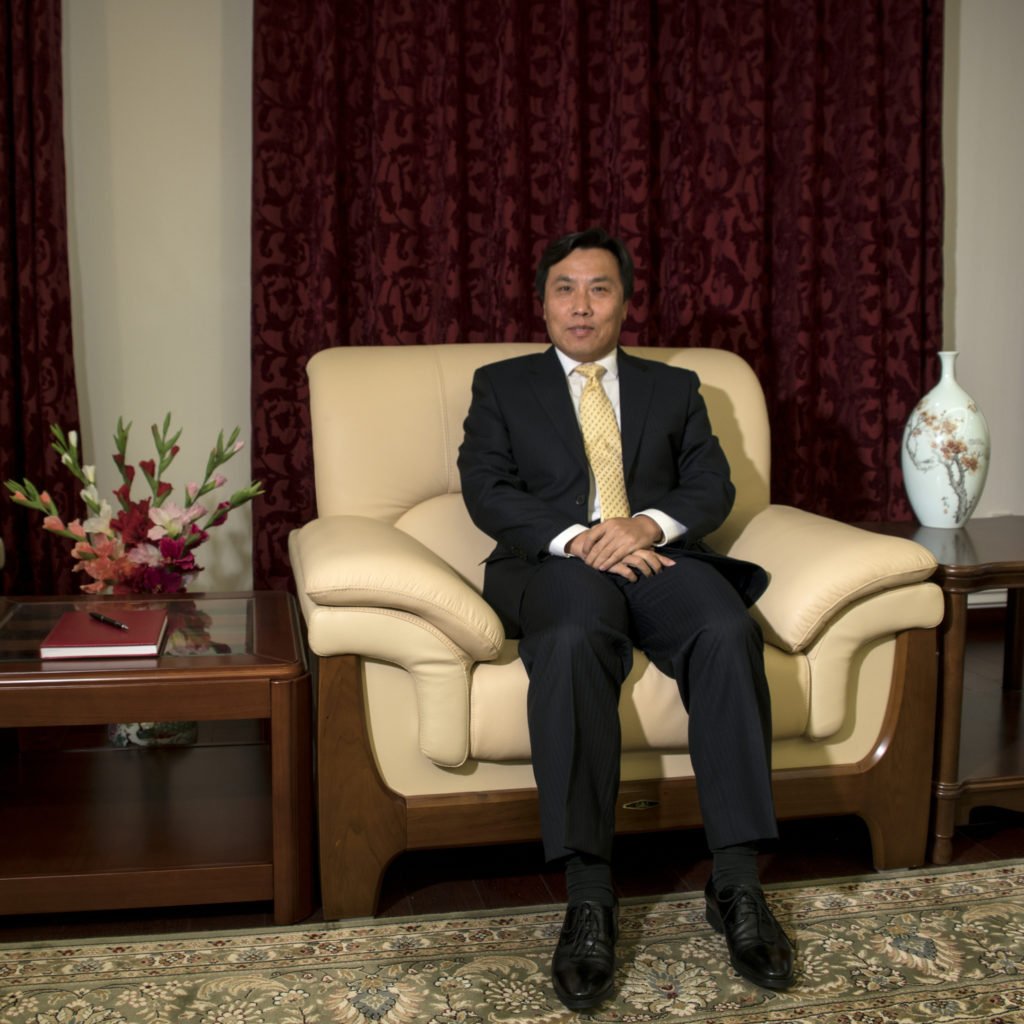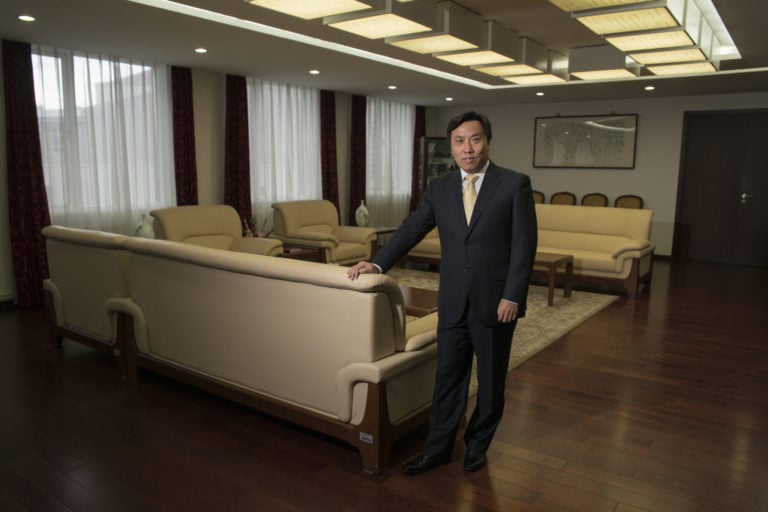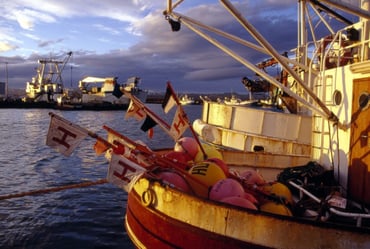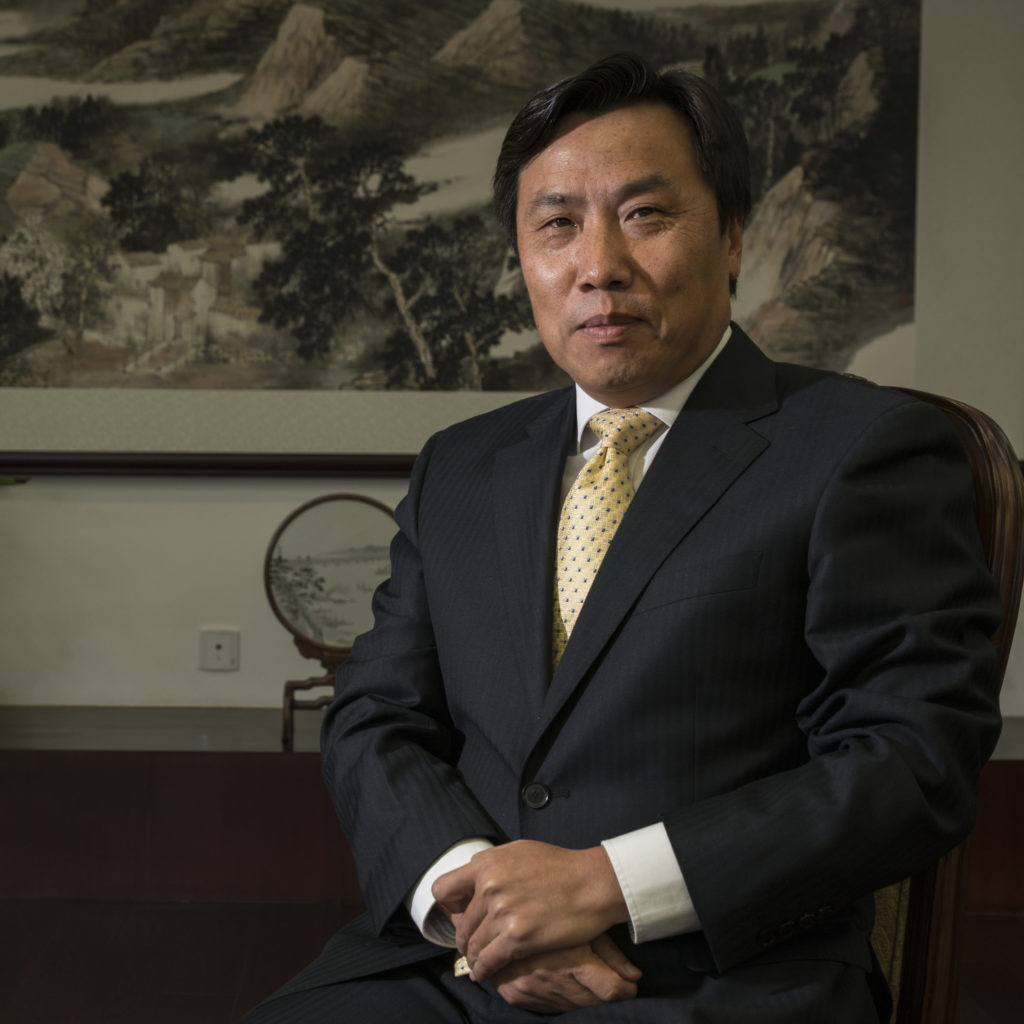Jin Zhijian – China’s Ambassador to Iceland – is not the average diplomat. He arrived in Iceland to become Ambassador in January 2018. „Ég man eftir þér,“ he says in perfect Icelandic, meaning “I remember you”, as he greets me in the Chinese Embassy in Reykjavík, and continues: “You were a journalist at the State TV and TV2 back in the old days when I was a student at the University of Iceland”. Ambassador Zhijian is very forthcoming, open and friendly as he looks me in the eye. I am a little taken aback.
“It is true! I was a TV-reporter and you, a foreigner, remember after all these years”, I reply hesitantly. Ambassador Zhijian smiles and explains. “I arrived in Iceland in 1985 to study at the University of Iceland at the invitation of the Icelandic government. I studied Icelandic and English and was here for six years until 1991. I was chosen by the Chinese government to go to Iceland to study and worked in our Embassy as well before going to our embassies in London, England; Copenhagen, Denmark; Chicago, USA and Christchurch, New-Zealand. I returned last year, well prepared to take on the Reykjavík post, 27 years after leaving Iceland. You can say that I have been preparing for this dream job of mine for over a quarter of a century. You see, Iceland is my second home.”
What a way to start an interview! What they say is true. The Chinese do plan for the future. It is a gorgeous Thursday afternoon, September’s first Thursday and the weather outside is truly wonderful, as has been all this summer in Iceland. Ambassador Zhijian invites me and Einar Thorsteinsson, publisher of Icelandic Times, to seats in the Ambassador’s quarters of the Embassy. He sits beside us smiling, relaxed yet enthusiastic.

Brand new Iceland
“Iceland really is brand new and has, like China, gone through incredible and amazing changes since I was here approximately thirty years ago. You no longer experience Iceland as an isolated island but rather, as a thriving, sophisticated country and Reykjavík an international metropolis. Amazing. I could hardly recognize the Embassy quarter and the Borgartún area of banks and high-tech when I came back. It is a privilege, working to link Iceland and China as closely as possible, to deepen our nations’ co-operation”, Ambassador Zhijian says.
He points out Iceland’s advances which he states are for all to see. The fishing industry was vibrant but the progress and modernisation are beyond belief. It is highly sophisticated and has managed to increase the value of the seafood. The nation is reaping the benefits of hydro and geothermal energy, with powerful factories opening in the East fjords, North-East and South-West and increasing exports.
And there is the development of innovation in the Icelandic tradition of pioneering and the progress that has come along. “I’ve just visited Iceland’s Innovation Centre, where entrepreneurs are working on lowering carbon fossil C0₂ in cement. I don’t know how they are going to do it but I know it would be appreciated in China,” he says and goes on: “Iceland is neither big nor small. Iceland’s story is of huge success like China’s story is of huge success. My mission is to link China and Iceland as closely as possible and find new areas to deepen co-operation”.
Chinese close ties with Iceland
Ambassador Zhijian points to e-commerce and China’s endless products on offer at incredible prices. However there many obstacles in the way which must be overcome. At times of climate change and protection of the environment, he points out that China is the largest manufacturer of cars in the world and would like to introduce electric cars to Iceland. He would like to find local partners to import Chinese cars.
Then there are infrastructure projects, such as building tunnels in the Eastfjords and Sundabraut, connecting Reykjavík to the west. China has amazing construction firms who offer exceptional prices. He points to Chinese construction workers’ successful involvement at Kárahnjúkar Power Plant. I ask Ambassador Zhijian about a meeting he had with the mayor of Þorlákshöfn regarding plans to build an international harbour on Iceland’s south-west coast. “There is strong interest at Þorlákshöfn and big ideas, like always in Iceland. It’s early days yet. We’ll see”, he answers and points out that China overseas investment in 2018 was $130 billion, while Chinese investment in Iceland was only $28 million and Iceland’s investment in China, $143 million.
He points to the Icelandic-China geothermal model, which really took off after President Jiang Zemin’s visit to Iceland back in 2002. Arctic Green Energy’s venture with the Sinopec Group is a revelation, with Sinopec Green Energy becoming the world’s largest geothermal company. There are important regions in China that are rich in geothermal energy. The model leads to eco-civilisation. Besides China, there are certainly exciting opportunities in neighbouring Mongolia and Kazakhstan.
Vice-President Mike Pence’s accusations
US Vice-President Mike Pence had been on State Visit to Iceland the day before. He had warned Iceland about China being a national security threat, specifically on Huawei technologies and infrastructure projects. Ambassador Zhijian states that accusations made by Vice-President Pence are not true and there is not a shred of evidence to support them. Huawei is a private company in China, expanding incredibly and now world famous. The Chinese government has never sought information from Huawei, nor does it intend to, he stresses and points out that both Icelandic companies Vodafone and Nova are using Huawei systems and smart phones to good effect.
“I myself am a long-time Huawei customer. I sincerely hope that Iceland will make its own decisions without third party interference,” he says and adamantly stresses that the Chinese don’t want to cause trouble to local communities.
What about claims of the Chinese intentions in Greenland and Arctic interference, I ask Ambassador Zhijian. “China has no presence in Greenland. Chinese construction firms made their intentions clear that they were willing to take part in bidding of airports. China is a world trading country. We care about the Arctic and have concerns about the effects of climate change on China, as well as the world. We are active in Arctic research and have a research base in Northern Iceland. We follow closely the possibilities of new Arctic sea routes. They say that, if routes open through the Arctic, it will save sailing times by 40% and costs by 30%. The Chinese shipping company, Cosco, has tested the route and the Snow Dragon icebreaker has made exploratory voyages”, he says.
We don’t seek world hegemony
The Belt and Road Initiative was adopted by President Xi Jinping in 2013, involving infrastructure development in 152 countries in Asia, Europe, Africa, the Middle-East and Americas. It refers to the road, rail and marine routes named the Silk Road Economic Belt. Russia and China are reported to have agreed on the Ice Silk Road through the Arctic. Iceland has been invited to participate but Vice-President Pence, during his visit, said that he hoped that Iceland would refuse. In March 2019, Italy became the first European country, along with Luxembourg, to join and Switzerland has signed a memorandum of understanding.
“We stress that the Belt & Road is open to everybody interested. Iceland has been invited to join but no decision has been made. I hope Iceland will join like other European countries. The Belt & Road covers key areas of policy coordination, infrastructure connectivity, unimpeded trade, financial integration and closer people to people ties. It is no Marshall plan or strategic agenda. China is not seeking dominance. It simply wishes to increase trade beneficial to China and the world,” Ambassador Zhijian says.
China’s incredible success
Chinese GDP – Gross Domestic Product – is 90 trillion Yuan, which is equivalent to over $13 trillion. China’s increase of 6.6% in 2018 equals Australia’s entire GDP. China’s development has been phenomenal. The middle class is 400 million, overseas trips by Chinese citizens number 170 million. Next year, Ambassador Zhijian argues, China is on the verge of wiping out extreme poverty. In its 70 year existence, China has lifted 800 million people out of poverty. The People’s Republic was founded in 1949 but the first GDP figures are from 1952, when GDP was 68 billion Yuan and now it’s 90 trillion Yuan. The GDP has grown 175 times at a rate of 8.1% annual growth. We have gone from an agricultural society to the world’s largest industrial country. Life expectancy has gone from 35 years to 77 years. These are hard facts.
Iceland’s and China’s incredible rise
In fact, probably no other two countries have gone through similar rise as China in the East and Iceland in the West. It is of great interest to ponder why these countries, that have established such close friendship, have made these immense inroads to prosperity despite natural challenges that create hardship. I believe it lies in the character of the nations, their hard work and proud histories . China has a history of five thousand years, Iceland a history of 1100 years. The importance of their rich cultures cannot be overstated and both peoples know where to head.
Far cry from the Soviet Union
Then what about one party rule and the democratic will of the people? “Take note of this”, Ambassador Zhijian replies and stresses. “The Chinese support the market economy and China is a far cry from the Soviet Union. It is correct that we do not see eye to eye on human rights. We truly believe that individual rights should be protected in line with communities and ethnic groups. The reason is the large population of 1.4 billion and immense size of the country. If we were to emulate western democracy, we would have a thousand parties and endless elections with consequent chaos.
We have nine political parties in China and, while it is true that the Communist Party is the ruling party, there are eight other parties in government. Decisions are made after consultations. We have the People’s Congress. In the west, disagreements and political debates are part of the system. We have different views on human rights and we ask our friends to respect that.
If you look at the rate of satisfaction made by foreign polls, there is 90% satisfaction among the Chinese population. People have confidence in the future, believing in open markets; relying on the government to secure justice for all, rich and poor”, Ambassador Zhijian says.




